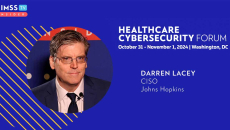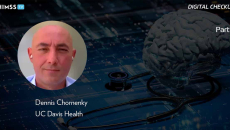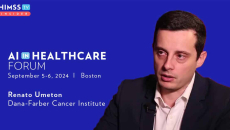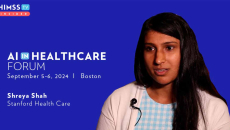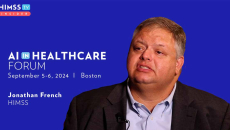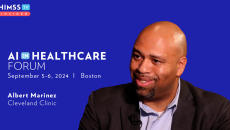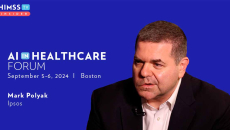clinical AI
Anurag Mehta, CEO and cofounder of Omega Healthcare, discusses the reasons for clinician and staff burnout and virtual nursing's role in easing providers’ duties, including responding to digital messages and completing EHR tasks.
Using component pieces of LLMs and AI techniques to extract information can enrich data and analysis for cybersecurity, says Johns Hopkins CISO Darren Lacey. It’s time to start treating data primitives as one of our primary jobs.
To ensure proper AI use in healthcare, chief AI officers must be proactive, reach out to colleagues, develop valuable relationships and set up informational sessions, says Dennis Chornenky, UC Davis Health chief AI advisor.
Medical illustrator David Bolinsky, E.mersion Studios CEO and creative director, creates animations representing molecular and cellular biology, and says AI image generators’ hallucinations may affect scientific medical illustration.
Renato Umeton, director of AI operations and data science at Dana-Farber Cancer Institute, discusses building a secure environment to test and deploy LLMs to ensure responsible use, continuous innovation and limited access to outside AI tools.
Dr. Zafar Chaudry, Seattle Children's chief digital officer and chief AI and information officer, discusses the importance of effective change management during AI implementation - and using AI as a tool rather than a stand-alone solution.
Shreya Shah, medical informatics director at Stanford Health Care, discusses the health system's use of genAI for patient message replies and ambient AI scribes to reduce the clinical documentation burden.
Jonathan French, senior director of public policy at HIMSS, says the organization hopes its members participate in the public policy development process and understand the real-world ramifications of that policy.
Albert Marinez, chief analytics officer at Cleveland Clinic, discusses how genAI is an order of magnitude higher than traditional strategies and how a lot of problems can be solved with traditional machine learning and predictive analytics.
Mark Polyak, president of analytics at Ipsos, says patients are comfortable with AI for administrative tasks and the promise of faster diagnosis, but it becomes an issue when human involvement is taken away and AI is asked to think on its own.

